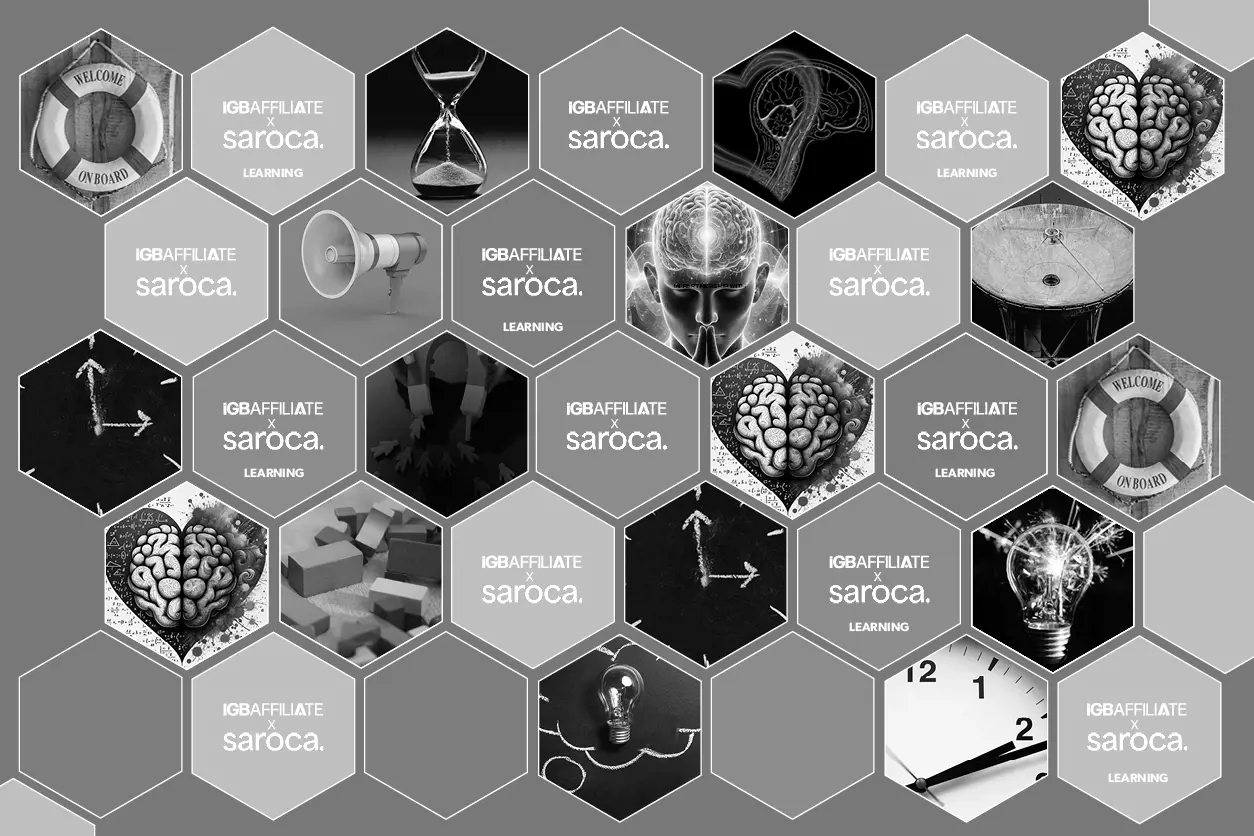

One of the things that can dismantle a workplace’s productivity is burnout. Saroca VP of development Claire Adamou writes for iGBA on recognising the signs of the efficiency stopper and how to prevent it from taking hold of your professional life or becoming rife in your company.
Burnout is an increasingly prevalent issue in today’s fast-paced work environment, affecting individuals across all demographics including men and women, young professionals, seasoned executives, and business owners alike.
As a VP of development in the igaming industry and a business owner, I’ve witnessed firsthand how burnout can manifest in various forms and impact both personal and professional lives. Back in 2023, I experienced burnout that led to significant health challenges, including temporary vision loss. This experience has illuminated the urgent need for awareness, prevention, and recovery strategies that apply to everyone in the workforce.
What is burnout?
Burnout is characterised by emotional, physical, and mental exhaustion caused by prolonged and excessive stress. The World Health Organization recognises it as an occupational phenomenon, emphasising its impact on one’s overall health and well-being. Burnout can lead to decreased productivity, feelings of hopelessness, and a lack of motivation, ultimately hindering career progression and personal satisfaction.
Spotting the signs
Understanding the signs of burnout is crucial for early intervention. Here are some common symptoms that anyone can experience:
- Chronic fatigue: A pervasive sense of tiredness, regardless of how much rest one gets. This fatigue often extends beyond physical tiredness and seeps into mental energy.
- Irritability and mood swings: Increased irritability can affect relationships at work and home, leading to conflicts and communication breakdowns.
- Reduced performance: A decline in work quality and productivity is often noticeable. Tasks that once seemed manageable can become overwhelming.
- Physical symptoms: Burnout can manifest physically as headaches, gastrointestinal issues, or other stress-related ailments.
- Detachment: A sense of disengagement from work, colleagues, or responsibilities, often leading to feelings of hopelessness.
Burnout can manifest physically as headaches, gastrointestinal issues, or other stress-related ailments
Setting boundaries
Establishing boundaries is essential for preventing burnout. Here are effective strategies for professionals across various fields:
- Define work hours: Clearly delineate your work hours. Avoid checking emails or engaging in work-related tasks outside of those hours to maintain a healthy work-life balance.
- Delegate responsibilities: Whether you’re a manager or a team member, delegating tasks is vital. Trusting colleagues to handle responsibilities lightens your load but also fosters team collaboration.
- Implement digital detoxes: Schedule regular breaks from technology. This can mean taking a few hours each week to unplug from devices, allowing for mental space and reduced stress.
- Practice saying no: Learn to decline additional responsibilities or projects that don’t align with your primary goals or that could overextend your capacity.
Learn to decline additional responsibilities or projects that don’t align with your primary goals or that could overextend your capacity
Being proactive
Beyond boundaries, there are proactive measures everyone can take to help prevent burnout:
- Prioritise self-care: Engage in regular self-care practices - exercise, hobbies, or mindfulness activities. These rituals help recharge your mental and physical health.
- Foster professional relationships: Building a supportive network is crucial. Engage with peers or mentors to share experiences and strategies for managing stress.
- Seek professional support: Don’t hesitate to reach out for professional help if needed as therapists can offer guidance tailored to your unique circumstances.
- Pursue continued learning: Engaging in professional development can invigorate your career. Learning new skills can bring a fresh perspective and reignite passion for your work.
- Embrace the “weekly 140”: Research suggests that dedicating just 140 minutes each week to active stress management techniques, such as mindfulness, exercise, or creative pursuits, can significantly improve mental wellbeing. Combining these active strategies with passive approaches like ensuring adequate sleep and nutrition can create a comprehensive burnout management plan, allowing you to recharge effectively and sustainably.
Burnout recovery
If you find yourself in the midst of burnout, taking actionable steps toward recovery is crucial:
- Acknowledge your experience: Recognising burnout is the first step. Accept that you are facing a challenge that requires attention.
- Take a break: If possible, take a step back from work. Use this time for rest and reflection, allowing your mind and body to recuperate.
- Reevaluate your priorities: Reflect on your professional and personal commitments. Identify areas where you can simplify or eliminate responsibilities.
- Create a recovery plan: Develop a structured plan for recovery, including setting new boundaries, pursuing self-care activities, and seeking support.
- Engage in mindfulness practices: Incorporate mindfulness techniques, such as meditation or journaling, into your daily routine to help manage stress and improve focus.
How organisations can help
Burnout is a serious issue that deserves our attention and action. It can affect anyone, regardless of gender or position in the workplace. By acknowledging its existence and implementing proactive strategies, we can create a healthier work environment that fosters wellbeing for all employees.
To combat burnout effectively, organisations must prioritise mental health initiatives and encourage open discussions about stress and workload management. By fostering a culture of support and understanding, we can empower individuals to take charge of their mental health and wellbeing.
To combat burnout effectively, organisations must prioritise mental health initiatives and encourage open discussions about stress and workload management
Saroca educates teams and organisations on the potential state or risk of burnout. We offer a burnout assessment and we are here to support you and your organisational culture to nurture the prevention of burnout in your staff.
My journey through burnout has highlighted the importance of awareness and proactive measures in both personal and professional settings. As we strive for success in our careers, let’s commit to fostering an environment that values mental health as much as productivity. By sharing our experiences and supporting one another, we can combat burnout together and create a sustainable path forward for everyone in the workforce.

Claire Adamou
Claire Adamou is a polished marketer, leader, entrepreneur and coach with experience in multiple sectors, most notably almost 2 decades in the igaming Industry. Claire is exceptional at carving new pathways for possibility both personally and professionally. In 2021 Claire returned to school to add life and leadership coaching to her repertoire. Claire’s tenacity and powerhouse attitude, along with her exceptional experience in the iGaming industry is what makes her an expert in her field.